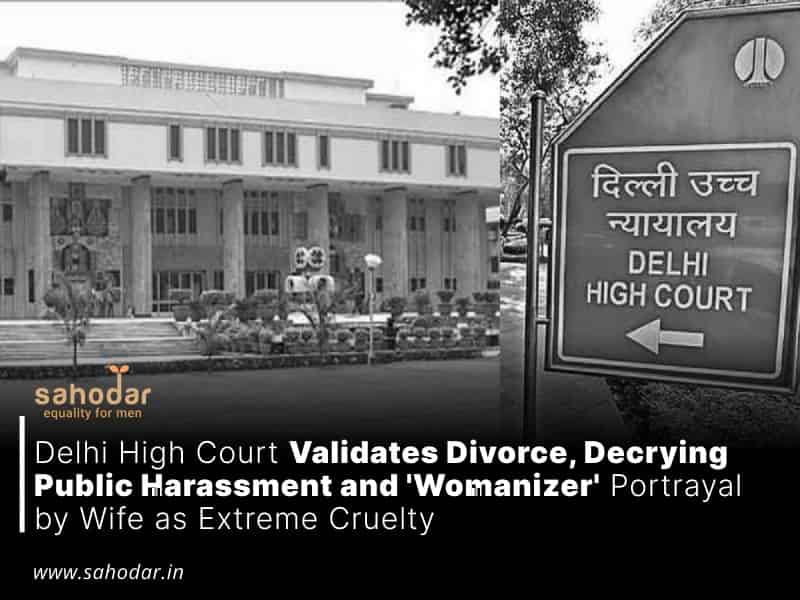The Delhi High Court has recently upheld a divorce decree in a case where the wife’s actions were deemed severely harmful to her husband, citing acts of cruelty. Justices Suresh Kumar Kait and Neena Bansal Krishna, forming the division bench, concluded that the wife’s public harassment, including branding her husband as a “womaniser” at his workplace, amounted to extreme cruelty.
The bench underscored that unfounded, defamatory accusations by a spouse, especially when they tarnish the other’s public image, constitute profound cruelty. Trust, faith, and respect were identified as crucial foundations for any marriage, and the court argued that enduring disrespectful conduct from a partner lacking faith was unreasonable.
The judgment highlighted the marriage expectation for mutual respect and the assurance of support and protection in times of need. The court noted instances of the husband facing public harassment and verbal attacks, including accusations of infidelity during office meetings, leading to the portrayal of him as a womaniser. The court determined that such behaviour constituted extreme cruelty towards the husband.
These observations were part of the court’s response to the wife’s appeal against a family court’s decision to grant divorce on the grounds of cruelty as filed by the husband. The court emphasised the significance of mutual respect and faith in sustaining a successful marriage, emphasising that compromise beyond a certain threshold inevitably leads to the end of the relationship.
Furthermore, the court addressed the use of the child as a weapon, highlighting the wife’s attempts to alienate the child from the husband. Acts of cruelty and harassment over the six years of the couple’s relationship were deemed sufficient to cause mental agony and trauma to the husband, even prompting thoughts of suicide at times. The court concluded that the alienation of the child and the use of the child as a weapon against the father were particularly painful, given the father’s consistent provision for the child’s needs throughout the relationship.

